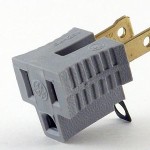A debt collector’s threat to sue you usually produces terror.
You’re scared about losing your wages, or your bank accounts. Scared about being served with process at work.
The threat of a lawsuit often triggers the first call to my law office. Some collector has said he will take 25% of your wages, or will serve a lawsuit, or even will send the account to collection. You panic.
Can I file bankruptcy today? the caller asks.
So, are debt collectors really that scary?
Lawsuits don’t happen overnight
Remember the idea of due process from high school civics?
Due process assures that the threatened collection suit is not happening immediately. The threat is weeks, if not months, away.
Due process, at its simplest form in a collection suit, means that you get legal notice and a right to contest the claim of any creditor before they take your property.
So, the only way the average unsecured creditor can take your wages or your assets is to file a lawsuit. Then it must serve the complaint on you (there’s your notice) . And you get an opportunity to resist the suit by filing an answer.
Only when the court issues a judgment in the creditor’s favor can it seize your property.
In short, you will see this kind of creditor coming long before they have a legal right to take anything from you.
The scary creditors operate by different rules
Two kinds of creditors don’t have to sue you to take your money. These are the folks that might take your money today.
Due process works a little differently for your bank and the taxing authorities.
Your bank has a right of offset under state law: it owes you the return of your money on deposit and you owe the bank on a line of credit or other loan.
Because you and the bank each owe the other money, the bank can offset the money you owe it from what it holds for you. No lawsuit is required.
The right to offset, or set off, mutual debts is often found in state law. It is also found in your deposit agreement with the bank.
Due process is satisfied because the bank’s right is found in either the agreement between you and it, or in state law.
Tax collectors empowered by law
The IRS also has a right to levy on your account without filing suit for unpaid taxes.
The tax code has requirements about giving you notice of your tax debt and even notice of their intent to levy. But the IRS does not have to file a lawsuit to collect its money.
So, in my book, the bank and the IRS are the creditors that have real powers to snatch your money on short or no notice.
The collector for a credit card company wants you to think they have immediate and horrific tools to collect their bill, but it isn’t so.
It’s just so much easier for them to collect if they gloss over your right to due process.
More
Discharging taxes in bankruptcy
The secret bankruptcy alternative
Image courtesy of dualdflipflop.






